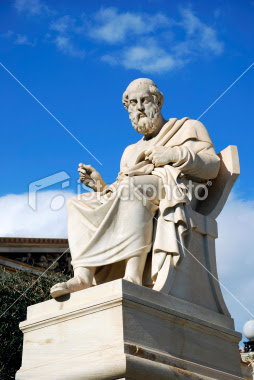Crafts were not the exclusive prerogatives of slaves, however. Poorer citizens as well as free foreigners worked as craftsmen. And their sons typically received an elementary education in mousike and gymnastike (described below) before being apprenticed in their father's workshop. Though training in a craft was not thought of as education in the strict sense, some knowledge of crafts such as medicine was considered - at least by some theorists - to be part of the repertoire of a well educated citizen.
After the creation of the Athenian polis (city, city-state) in the late seventh century BCE, free women spent their time at home. There they learned to spin, cook, take care of children, and manage the household. No schools were provided for women and, even in the Hellenistic period, illiteracy rates were higher among them than among men. Nonetheless, some women were well educated. Aspasia, the Milesian-born mistress of Pericles, is said to have taught rhetoric and to have had discussions with Socrates, and both Plato and Epicurus, as well as earlier Pythagoreans, are known to have admitted women into their schools.
For the first few years a boy was looked after by his mother or nurse (usually a slave). He played games and listened to stories based on traditional myths. Later he received elementary education, typically at the hands of three different teachers. The paidotribes taught gymnastics, games, and general physical fitness, usually in the palestra. The kitharistes taught music, lyric poetry, and song. The grammatistes taught reading, writing, mathematics, and literature. Here a boy learned Homer and Hesiod by heart, not just for their beauty and cultural importance, but as a way of acquiring Greek moral values. Frequent public competitions in athletics, dance, music, recitation - often coinciding with religious festivals - provided an opportunity for both the exhibition of skill and its evaluation by adults.
By the mid-fourth century BCE, and probably earlier, Athens required the legitimate sons of Athenian citizens of all classes to undergo two years of compulsory, statesponsored, military training (ephebeia), beginning at age eighteen (see Plato, Republic). This was supervised by a kosmetes and by ten (later twelve) sophronistai, one from each Athenian tribe. In the first year, it consisted of physical training and technical weapons instruction conducted in a barracks in Piraeus. In the second year, epheboi served at the frontier posts of Attica. From the third century BCE, with the decreased significance of citizen militia, intellectual training in philosophy, literature, rhetoric, and music came to play an increasing role in the ephebeia.
From puberty (which probably occurred quite late in the ancient world) until he grew a full beard, an adolescent Athenian male was sexually pursued by older males. This paiderasteia, as it was called, was supposed to provide sexual pleasure for the older male (erastes) and an education in male virtue, but no sexual pleasure, for his "boy" (pais, eromenos). When the boy grew to manhood, he was supposed to become an erastes in turn and cease to play the role of an eromenos. The symposium, or drinking party, was a locus both for the transmission of traditional values and for male homosexual bonding. Its political and educational significance - somewhat strange to us - is manifest in the attention paid to it by Plato in his Protagoras and Laws.
By the late fifth century BCE, it was possible for Athenians to acquire further education by attending the lectures, or listening to the conversations, of a group of itinerant "professors," the sophists. Though not organizationally, doctrinally, or methodologically a school of any sort, the sophists tended to be pragmatic, naturalistic, humanistic, agnostic in religious matters, and relativistic (in some sense) in ethical ones. The sophists popularized Ionian natural philosophy (Thales, Anaximander, Anaximenes, Heraclitus), taught history, geography, and anthropology, and pioneered the systematic study of language, including techniques of argument and persuasion, grammar, literary criticism, and semantics. As a consequence, they were seen as potentially subversive of traditional values, especially by more conservative citizens.
Read More : Education in Classical Athens
